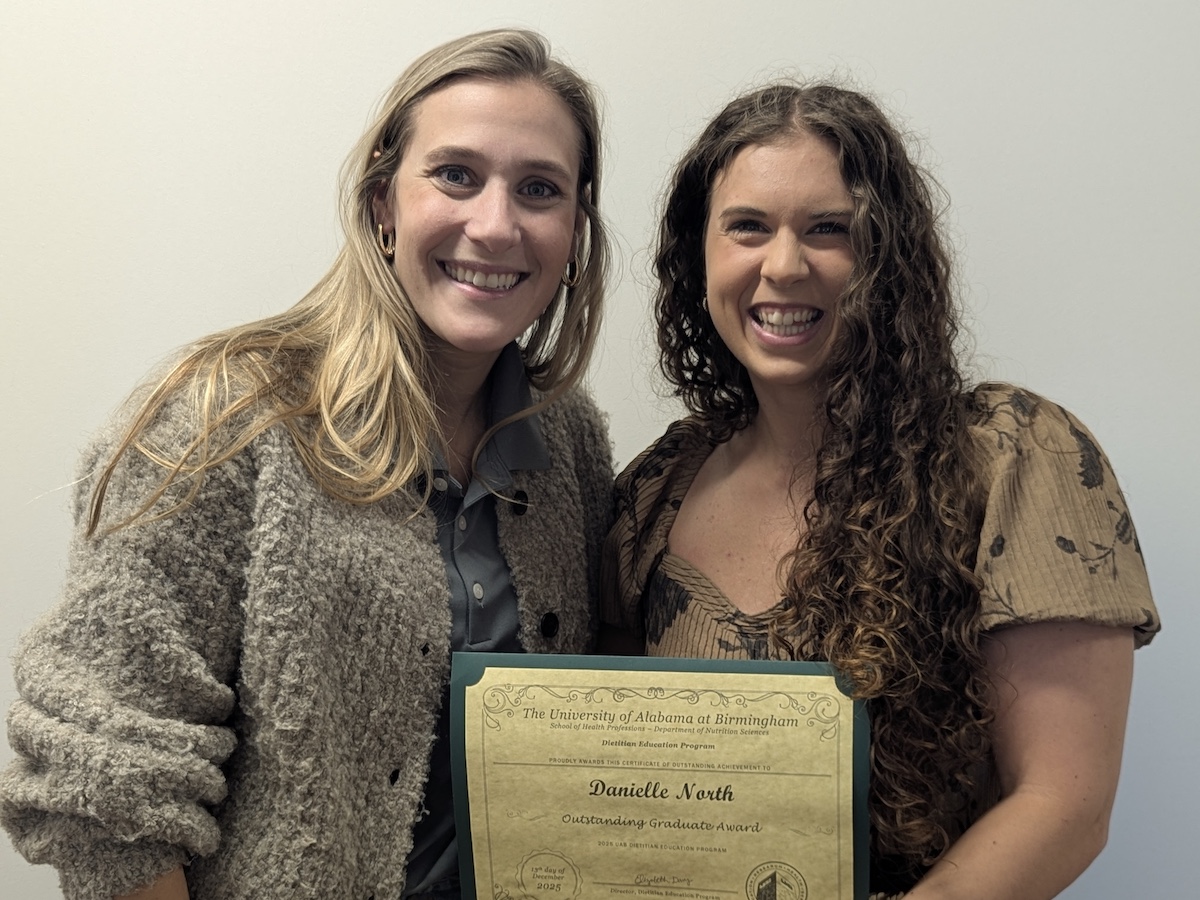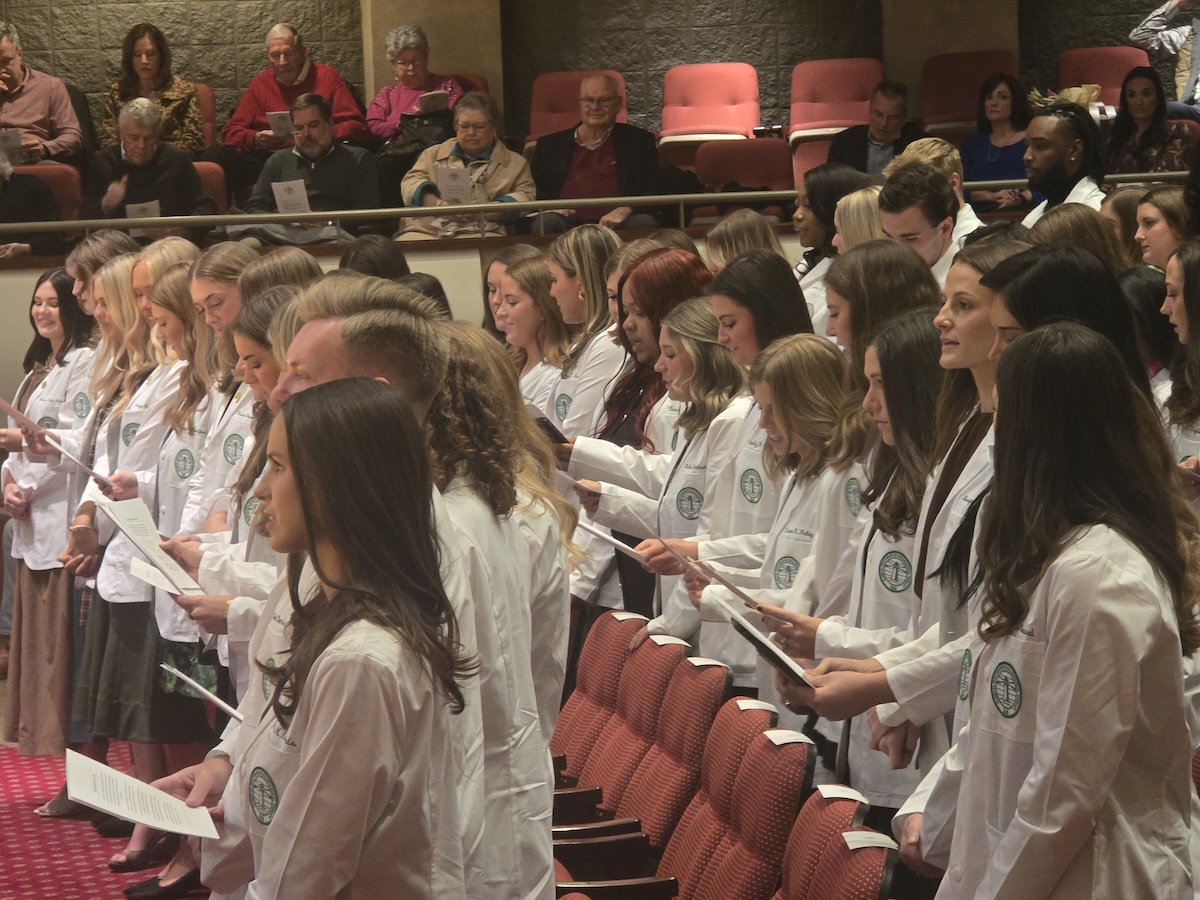Emily Caffrey, Ph.D., supervised practice coordinator and adjunct faculty member of the UAB M.S. in Health Physics program, is the recipient of the 2020 Elda E. Anderson Award. At the age of 31, she is the youngest member of the Health Physics Society to earn the honor that has been delivered every year since 1962.
The award recognizes excellence in research/development, discovery/invention, devotion to health physics, and significant contributions to the profession of health physics for individuals under the age of 40.
“Dr. Caffrey is dedicated to the health physics profession and the HPS – she has achieved in all four areas and is a great representation of the next generation of health physicists,” said John E. Till, Ph.D., president, Risk Assessment Corporation.
“Winning the Elda Anderson award is very exciting. The achievements of past recipients are immense, and I feel honored to be in that company,” said Caffrey, the first from UAB to win the Elda Anderson Award. “ I feel privileged that I’ve had so many opportunities to serve the society and profession, and I hope to continue for many years to come!”
In Alabama, she helped revive the Alabama Chapter of the Health Physics Society by serving as its president for two years. She worked to increase engagement from HPS members across the state and has grown the chapter to more than 15 active members.
At the national level, Caffrey is involved in the HPS Public Information Committee (PIC), of which she is currently serving as the chair. She also serves as the “Ask the Expert” Editor in Chief. In these roles she helps develop videos that showcase the most commonly asked questions. This is the HPS’ most successful public education endeavor, reaching more than one million people per year.
Caffrey, who has published 16 technical articles including 12 in the open scientific literature, is actively involved in the National Council on Radiation Protection (NCRP) and served on NCRP Committee SC 1-25, which examined recent epidemiologic studies and their implications for the Linear No-Threshold (LNT) Model. The results will guide investigators in developing dosimetry for future studies on low dose radiation.
The UAB M.S. in Health Physics program is the only one of its kind in Alabama and one of about 20 across the United States. The study of health physics focuses on protecting human life by balancing the risks and benefits of radiation as a whole and ionizing radiation specifically. Learn more at uab.edu/healthphysics.

